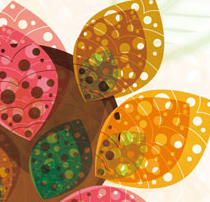





Genius is one percent inspiration and ninety-nine percent perspiration.—Thomas Alva Ediso
天才等于百分之一的灵感加上百分之九十九的汗水。——托马斯·阿尔瓦·爱迪生
Fidelis Umeh was born in Nigeria and lived there throughout his high school years. Fidelis Umeh grew up with strong family values of the traditions of the Ibos, a culture within Nigeria.“One thing that we Nigerians, particularly the Ibos, have taught us from youth is the value of education. It is paramount . And the drive to succeed—my culture says that each person must work very hard and that is essential to success, which is very important. And we have support from family that keeps us going when things are difficul Sometimes perseverance can make the differenc between success and failure.”
He moved to the United States when he went to college. Afte he finishe college, he stayed connected to his family in Nigeria. He returned to Nigeria at least once a year, but he made his home and career in this country. He became a business leader.
Fidelis Umeh has succeeded in the business community, which some people see as a separate culture all of its own. He planned projects. He designed systems. He brought new ideas to businesses. He has been president of a computer company that employs hundreds of highly skilled individuals. At the same time, he kept his commitment to his original culture.
In 1991, he founded a group to support Nigerians in Chicago. “I formed a group of Nigerians to be an anchor for them that will fit int the American society but at the same time will give them something to fall back on in times of adversity . ①I feel it is a strength, it allows us to be individuals.”
“It has one goal, which is to bridge the gap between our people and the people in America.The target is to build an anchor where the Nigerians can feel their identity and at the same time become more connected to the Chicago scene.②The problem that we have with our children is that either our children don’t have an understanding of the Nigerian culture or an understanding of the American culture. ③Th focus is on children through adolescence. Th adults get to benefi from the network.”
“We started with story-telling. We are telling the children the stories that our families have told for generations. Each story has a moral, an idea that it teaches the children. Th children learn the moral. They also learn more about their own heritage. They will appreciate their heritage. The will realize that they have to work hard, too, to achieve progress.”
With more than 15,000 Nigerians in Chicago today, the potential is very great. Fidelis Umeh said that “Th vision of Enumbra is that the Nigerian community will bring the traits that are valued in their heritage as they join the American society. The will in fact be able to enrich the American culture.”
(479 words)

① I formed a group of Nigerians to be an anchor for them that will fit into the American society but at the same time will give them something to fall back on in times of adversity.
我组建了一个尼日利亚社团,作为他们融入美国社会的基石,同时也作为支持他们渡过难关的后盾。
② Th target is to build an anchor where the Nigerians can feel their identity and at the same time become more connected to the Chicago scene. 社团的成立也是为了搭建一个平台,既能让人们感受到他们作为尼日利亚人的存在,同时又能让他们更加融入芝加哥的社会文化中。
③ The problem that we have with our children is that either our children don’t have an understanding of the Nigerian culture or an understanding of the American culture. 我们的孩子身上存在的问题是他们对尼日利亚文化和美国文化都不了解。
1. What do we know about Fidelis Umeh?
A. He was born in Nigeria and lived there throughout his whole life.
B. He went to America to finis his college.
C. He made his home and career in Nigeria.
D. He founded the group when he was in college.
2. What can we infer from the traditions of the Ibos?
A. For the Ibos, the most important thing is the value of education.
B. Th Ibos think highly of being successful.
C. Th Ibos believe that perseverance determines success and failure.
D. Th Ibos attribute success to family support.
3. According to Paragraph 5, which of the following statements is correct?
A. Th group is founded to help the people in times of adversity.
B. Th Nigerians cannot feel their identity at all in Chicago.
C. Th focus is getting adults to benefi from the system.
D. Th Nigerian children don’t know much about the Nigerian and the American culture. 4. What’s the function of the Nigerian group?
A. To tell the Nigerian children the stories that their families have told for generations.
B. To engage more Nigerian adults in it so that they can profi from it.
C. To bridge the gap between the Nigerian and the American.
D. To get the Nigerians to value their heritage, fi into the American society and enrich the American culture.
5. According to the text, what traits are valued in Nigerian culture?

Do you think this Nigerian group will help their people fi into American culture? Why?